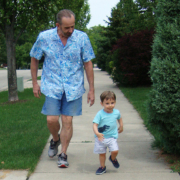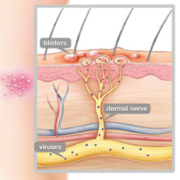Dr. Chet’s Health Memos
 If it’s in the health news today, I’ll be writing about it as soon as I read the research, both old and new. With my email Health Memos, you’ll know more about making lifestyle choices that will help you get and keep good health. These free, concise updates on health are emailed to subscribers twice a week. Subscribe today and get a free MP3, in English or Spanish, of Dr. Chet’s Top Ten Tips—Small Changes for a Healthier Life.
If it’s in the health news today, I’ll be writing about it as soon as I read the research, both old and new. With my email Health Memos, you’ll know more about making lifestyle choices that will help you get and keep good health. These free, concise updates on health are emailed to subscribers twice a week. Subscribe today and get a free MP3, in English or Spanish, of Dr. Chet’s Top Ten Tips—Small Changes for a Healthier Life.
Chelation Therapy: Too Soon to Judge
The results of the study on chelation therapy in subjects with diabetes showed a reduction in cardiovascular incidents during the follow-up time. No single event dominated, ranging from heart attack to stroke to death, but overall there were fewer incidents. Subjects who did not have diabetes did not experience a benefit in v incidents during […]
Update on Chelation Therapy
One of the questions asked during Tuesday’s Conference Call was about chelation therapy for helping with memory. I didn’t find any research to support that outcome, but a couple of studies have been published on chelation therapy with cardiovascular disease (CVD). One paper was from the Trial to Assess Chelation Therapy or TACT study. Chelation […]
Let’s Go!
Riley, my pretend grandson, is learning to talk; he’s taking his time about it, but he’s got a few things down pat. Paula says he’s the only child she’s ever known who used verbs before he used nouns, and his favorite verb is go. Whenever he hears anything that sounds like “shoes,” he perks up […]
Maybe They Won’t Notice
Last Friday, we had a small tornado touch down in our area. The wind and lightning were so bad, they woke me up at 3 a.m. I looked out the deck window and the rain was horizontal from the North. My front door window, covered by five feet of roof, was getting pummeled by rain. […]
Should You Get the Shingles Vaccination?
I think everyone over 60 should get the shingles vaccination, and the older you are, the more important it is. You’re going to get a lot of opinions on this one, so here’s how I arrived at this recommendation. Remember, one out of three or 33% of those over 60 will get shingles. The shingles […]
What Causes Shingles?
“What’s your opinion on getting the shingles vaccination? It’s expensive and my insurance doesn’t cover it. Is it worth it?” A little background first. Shingles is a viral infection. One million people will get shingles this year, and one out of three people 60 and older will get shingles in their lifetime. It’s caused by […]
Why I’ll Keep Using Coconut Oil
The research that the authors of the American Heart Association Presidential Advisory on Dietary Fats and Cardiovascular Disease, specifically on coconut oil, seems to be in conflict. The authors suggested coconut oil is bad for us, but the research studies they used didn’t really seem to confirm that conclusion. What gives? The criteria that the […]
Coconut Oil Research vs. the AHA
For this memo, I’ll print conclusions from the papers cited in the American Heart Association Presidential Advisory on Dietary Fats and Cardiovascular Disease and then print what the authors wrote about the research studies they used to assess coconut oil (1). I’ll confess, it’s hard to understand how they reached some of these conclusions. The […]
Coconut Oil: Healthy or Not?
The headlines screamed “Coconut Oil is Alarmingly High in Saturated Fats!” News post after news post talked about how Americans have been sold a bill of goods on the health benefits of coconut oil. Now the American Heart Association says it’s harmful. They published a Presidential Advisory on Dietary Fats and Cardiovascular Disease, a review […]
The Big Fried-Potato Question
During the eight-year study, only 236 of the 4,400 subjects died; fewer than 30 per year. We don’t know what caused their deaths; one would expect it to be heart attacks and strokes but that data was not examined. The researchers adjusted the analysis for a number of variables including age, but it would have […]










